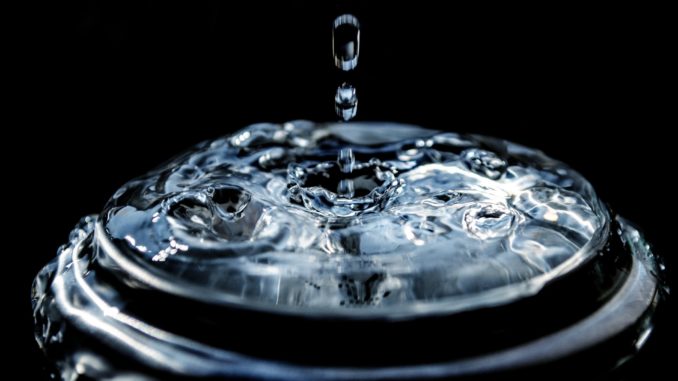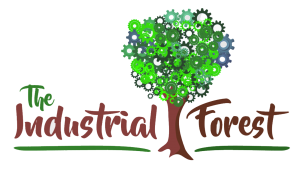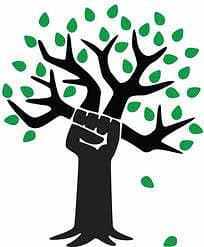
Oil companies have often been criticized for their environmental impact, and the issue of water pollution has been a major source of concern.
In recent years, however, oil companies have begun to take steps to reduce their environmental impact by using recycled water in their operations. This article will discuss how oil companies are recycling water and the benefits of this practice. It will also examine some of the challenges that oil companies face in implementing water recycling programs.
What is Water Recycling?
Water recycling is the process of collecting and treating used water for reuse in other applications. This process involves collecting and treating the water to make it safe for reuse in industrial and agricultural processes. The water is then used for cooling industrial machinery, cleaning, irrigation, and other activities.
Water recycling is not a new concept; it has been practiced for centuries in many parts of the world. However, it has been gaining increased attention in recent years due to the growing scarcity of fresh water and the need for more sustainable water management practices.
Benefits of Water Recycling
Water recycling has many benefits for both the environment and the oil industry. The most obvious benefit is the reduction in water usage, which can help conserve water resources and reduce the strain on water sources. It can also reduce the amount of wastewater discharged into the environment, which can help reduce water pollution and its associated health risks.
Additionally, water recycling can reduce the cost of operations for oil companies. Using recycled water instead of fresh water can help cut down on costs associated with water acquisition and treatment. This can lead to increased profits for the company and savings for consumers.
Oil Companies and Water Recycling
Oil companies have been making strides in water recycling in recent years. In 2013, for example, Exxon Mobil Corporation announced the launch of its “Water Wise” program, which aims to reduce water usage by up to 25% across all of its operations by 2020. This program includes a variety of initiatives, such as water reuse, wastewater treatment, and water conservation.
In 2014, Chevron Corporation also announced its “Water Reuse Initiative,” which aims to reduce the company’s water usage by up to 25% by 2017. The initiative includes a variety of initiatives, such as recycling and reusing water, improving water efficiency, and implementing water reuse technologies.
Additionally, BP has launched a number of water reuse initiatives in recent years. One example is the “BP Water Reuse Project” in Texas, which aims to collect and treat used water for reuse in industrial processes and agricultural irrigation.
Challenges of Water Recycling
Though water recycling has many benefits, there are also a number of challenges that oil companies must face in implementing these programs. These challenges include the cost of setting up water recycling systems, the complexity of water treatment processes, and the need to ensure that the recycled water is safe for use.
Additionally, there is often a lack of public acceptance of water recycling programs. This is due to the perception that recycled water is not as clean or safe as fresh water, and there is often resistance to the idea of using recycled water for industrial and agricultural purposes.
Conclusion
Water recycling is becoming increasingly important in the oil industry as companies look to reduce their environmental impact and conserve resources. Oil companies have begun to take steps to reduce their water usage and use recycled water in their operations. This article has discussed the benefits of water recycling, examined how oil companies are implementing water recycling programs, and discussed some of the challenges associated with water recycling. Ultimately, water recycling is an important step in reducing the environmental impact of the oil industry and helping to conserve our precious water resources.
Submit your Article Ideas to The Crude Life! Email studio@thecrudelife.com
About The Crude Life
Award winning interviewer and broadcast journalist Jason Spiess and Content Correspondents engage with the industry’s best thinkers, writers, politicians, business leaders, scientists, entertainers, community leaders, cafe owners and other newsmakers in one-on-one interviews and round table discussions.
The Crude Life has been broadcasting on radio stations since 2012 and posts all updates and interviews on The Crude Life Social Media Network.
Everyday your story is being told by someone. Who is telling your story? Who are you telling your story to?
#thecrudelife promotes a culture of inclusion and respect through interviews, content creation, live events and partnerships that educate, enrich, and empower people to create a positive social environment for all, regardless of age, race, religion, sexual orientation, or physical or intellectual ability.
Sponsors, Music and Other Show Notes

Studio Sponsor: The Industrial Forest
The Industrial Forest is a network of environmentally minded and socially conscious businesses that are using industrial innovations to build a network of sustainable forests across the United States.
Weekly Sponsor: Stephen Heins, The Practical Environmentalist
Historically, Heins has been a writer on subjects ranging from broadband and the US electricity grid, to environmental, energy and regulatory topics.
Heins is also a vocal advocate of the Internet of Everything, free trade, and global issues affecting the third of our planet that still lives in abject poverty.
Heins is troubled by the Carbon Tax, Cap & Trade, Carbon Offsets and Carbon Credits, because he questions their efficacy in solving the climate problem, are too gamable by rent seekers, and are fraught with unreliable accounting.
Heins worries that climate and other environmental reporting in the US and Europe has become too politicized, ignores the essential role carbon-based energy continues to play in the lives of billions, demonizes the promise and practicality of Nuclear Energy and cheerleads for renewable energy sources that cannot solve the real world problems of scarcity and poverty.
Look at what’s happened to me.
I can’t believe it myself.
Suddenly I’m down at the bottom of the world.
It should have been somebody else
Believe it or not, I’m walking on air.
I never thought I could feel so free-e-e.
Barterin’ away with some wings at the fair
Who could it be?
Believe it or not it’s just me
The Last American Entrepreneur
Click here of The Last American Entrepreneur’s website

Studio Email and Inbox Sponsor: The CarbonPatchKids
The CarbonPatchKids are a Content Story Series targeted for Children of All Ages! In the world of the CarbonPatch, all life matters and has a purpose. Even the bugs, slugs, weeds and voles.
The CarbonPatchKids love adventures and playing together. This interaction often finds them encountering emotional experiences that can leave them confused, scared or even too excited to think clearly!
Often times, with the help of their companions, the CarbonPatchKids can reach a solution to their struggle. Sometimes the CarbonPatchKids have to reach down deep inside and believe in their own special gift in order to grow.
The caretakers of CarbonPatch do their best to plant seeds in each of the CarbonPatchKids so they can approach life’s problems with a non-aggressive, peaceful and neighborly solution.
CarbonPatchKids live, work and play in The Industrial Forest.
Click here for The CarbonPatchKids’ website

Featured Music: Alma Cook
Click here for Alma Cook’s music website
Click here for Alma Cook’s day job – Cook Compliance Solutions
For guest, band or show topic requests, email studio@thecrudelife.com
Spread the word. Support the industry. Share the energy.





